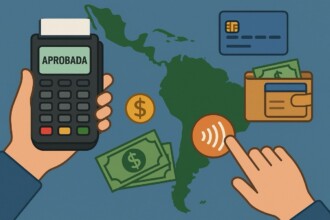The European top court on Tuesday, September 10, ruled against Apple.

The mentioned decision is the result of a 10-year legal battle by the specified technology giant over its tax affairs in Ireland. It is worth noting that the European Court of Justice issued a ruling a few hours after Apple presented new generations of several product lines, including the iPhone, Watch, and AirPod.
The official statement of the technology giant, quoted by the media, notes that according to the developer of one of the most popular smartphones in the world, the European Commission is trying to retroactively change the rules and ignore the fact that the company’s income has already been taxed in the United States. Apple underlines that the mentioned European executive arm, according to international tax law, cannot ignore the specified fact.
Against the background of the dissemination of information about the court’s decision, the value of shares of the technology giant fell by 1% on the premarket.
The Irish government has released an official statement noting that the Apple case involved an issue that is currently of historical relevance. The government of the mentioned country also underlined that its position was that Dublin, as a political center, does not provide tax preferential treatment to any companies or taxpayers.
Separately, the Irish government noted that it is starting the process of transferring assets from the escrow fund to the country.
In 2014, the European Commission launched an investigation into the iPhone developer’s tax payments. In this case, attention was focused on the relevant actions of the technology giant in Ireland, where its headquarters are located in the European Union.
Two years after the investigation began, the European Commission ordered Dublin to recover up to 13 billion euros ($14.4 billion) in back taxes from Apple. In this context, it was separately noted that for two decades the technology giant had been receiving illegal tax benefits in Ireland.
Dublin and Apple appealed the decision of the European Commission in 2019. The General Court of the European Union agreed with the arguments of the technology giant in 2020. The EU’s second-highest court overturned the European Commission’s 2016 decision, saying that the executive arm had not proved that the Irish government had provided Apple with tax benefits. After that, the review of the results of the proceedings continued.
The European Commission appealed the decision of the General Court, sending the case to the European Court of Justice, which on Tuesday set aside the decision of the mentioned court and confirmed the original executive arm ruling from 2016.
This trial, which began under the outgoing competition chief, Margrethe Vestager, is an example of the not-very-good relationship between the technology giants from the United States and the European Union. Currently, regulators in the EU are trying to tackle issues related to the activities of the mentioned large US companies in the region in the context of aspects such as taxation, compliance with antitrust laws, and data protection.
It is worth mentioning that in March, the European Commission fined the technology giant 1.8 billion euros. This antitrust fine is related to the fact that, according to the mentioned executive arm, the technology giant is involved in abusing its dominant position in the distribution market of apps for music streaming.
It is also worth noting that the Digital Markets Act of the European Union has caused companies to make changes to some of their practices in the region. As part of this act, the European Commission has launched investigations into technology giants such as Apple, Alphabet, and Meta.









